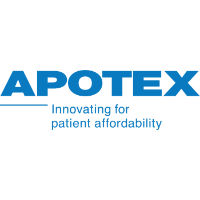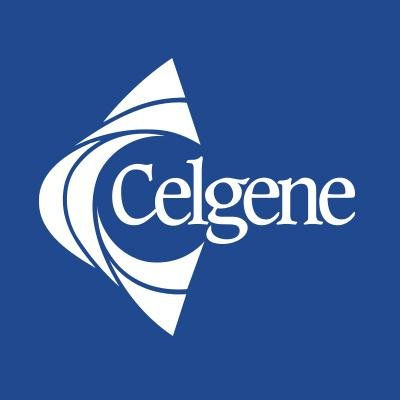预约演示
更新于:2025-05-07

Lipomed AG
更新于:2025-05-07
概览
标签
免疫系统疾病
皮肤和肌肉骨骼疾病
血液及淋巴系统疾病
小分子化药
降解型分子胶
疾病领域得分
一眼洞穿机构专注的疾病领域
暂无数据
技术平台
公司药物应用最多的技术
暂无数据
靶点
公司最常开发的靶点
暂无数据
| 排名前五的药物类型 | 数量 |
|---|---|
| 小分子化药 | 3 |
| 降解型分子胶 | 1 |
| 排名前五的靶点 | 数量 |
|---|---|
| TNF(肿瘤坏死因子) | 1 |
| RNRs(核糖核苷酸还原酶复合体) | 1 |
| DNA | 1 |
关联
4
项与 Lipomed AG 相关的药物靶点- |
作用机制 铁调节 |
在研机构 |
原研机构 |
最高研发阶段批准上市 |
首次获批国家/地区 欧盟 [+3] |
首次获批日期1999-08-25 |
靶点 |
作用机制 TNF抑制剂 |
原研机构 |
最高研发阶段批准上市 |
首次获批国家/地区 美国 |
首次获批日期1998-07-16 |
靶点 |
作用机制 RNR抑制剂 |
原研机构 |
非在研适应症 |
最高研发阶段批准上市 |
首次获批国家/地区 美国 |
首次获批日期1993-02-26 |
3
项与 Lipomed AG 相关的临床试验NCT00656812
Phase II Trial of Rituximab Plus 2CdA in Patients With Advanced or Relapsed Lymphoma of the Mucosa Associated Lymphoid Tissue (MALT)
The purpose of this trial is to evaluate whether a Rituximab plus 2 CdA combination therapy is effective and safe in the treatment of patients with advanced or relapsed lymphoma of the mucosa associated lymphoid tissue (MALT).
开始日期2008-05-01 |
申办/合作机构 |
NCT00349453
Retrospective and Prospective Multicenter Study Using Deferiprone (L1) Alone or in Combination With Desferrioxamine for the Treatment of Iron Overload in Transfusion-dependent Patients
Systematical (retro- and prospective) investigation of the long-term safety (toxicity assessment according to CTCAE v3.0) and efficacy of deferiprone either given alone or in combination with desferrioxamine
开始日期2005-03-01 |
申办/合作机构 |
NCT00350662
Randomized Open-label Phase III Study With Deferiprone and/or Desferrioxamine in Iron Overloaded Patients
Comparison of efficacy and toxicity of the combination treatment of deferiprone and desferrioxamine with the single agent treatment of either drug
开始日期2002-01-01 |
申办/合作机构 |
100 项与 Lipomed AG 相关的临床结果
登录后查看更多信息
0 项与 Lipomed AG 相关的专利(医药)
登录后查看更多信息
2
项与 Lipomed AG 相关的新闻(医药)2023-03-21
Today, LGC announced the acquisition of Lipomed AG’s reference materials business including standards with drugs of abuse and toxicology applications, and thus greatly complementing LGC’s reference standards offering.
Lipomed Reference Standards is a leading manufacturer and supplier of analytical reference standards with ISO/IEC 17025 accreditations for testing and ISO 17034 accreditation for production of reference materials. The business currently has manufacturing operations in Switzerland and a sales and distribution base in Cambridge, MA, USA, and this transaction will add a range of innovative products which are marketed and distributed in more than 50 countries around the world.
Ken Yoon, Executive Vice President & General Manager, LGC Standards, said, “We are really excited to be bringing Lipomed’s innovative reference standards team into LGC. Their drugs of abuse and toxicology portfolio will be a great fit with the LGC Standards business unit. We look forward to combining Lipomed’s and LGC’s expertise to deliver excellent solutions for our customers and to continue our mission of delivering Science for a Safer World.”
并购
2021-09-14
Canadian antibody shop AbCellera
acquired
Massachusetts biotech TetraGenetics in an all-cash transaction. While more specific details were not made publicly available, AbCellera did say in a statement that the acquisition includes an upfront payment and potential milestone payments based on technical achievements, successful R&D and commercialization.
Founded in 2004, TetraGenetics specializes in protein production — specifically transmembrane proteins, which have proven to be difficult to produce in the past. Where TetraGenetics comes into the equation with AbCellera is that TetraGenetics can make enough transmembrane proteins to support antibody discovery.
Having slowly built up a network of biopharma clients in recent years, AbCellera shot to fame during the pandemic as Eli Lilly tapped it for Covid-19 antibody partnership.
“We look forward to welcoming the TetraGenetics team and believe that these new capabilities, once integrated into AbCellera’s technology stack, will empower the discovery of new antibody therapies across a range of therapeutic areas,” said AbCellera CEO Carl Hansen in a statement.
UK biotech Compass Pathways has
gained access
to an intellectual property portfolio including patent applications covering a variety of psychedelics, empathogens and prodrugs. The IP was developed together with Matthias Grill, founder and CEO of MiHKAL. Based in Basel, Switzerland, Grill will be working with Compass to develop new product candidates.
Grill has been involved in psychedelic chemistry research for over 15 years, and he has held positions as head of R&D at Arbolea, Lipomed and THC Pharm. He has also synthesized psychedelic substances for a number of human research studies, including at the University of Basel and the National Institute of Mental Health in the Czech Republic.
“We are delighted to be working with Matthias and MiHKAL GmbH. This agreement will strengthen and expand our IP and development portfolio with new compounds. We plan to move some of these compounds into clinical development within the next two years,” said Compass CBO and president Lars Wilde in a statement.
Zai Lab
received
a breakthrough designation today from the Center for Drug Evaluation of NMPA for bemarituzumab — as first-line treatment for patients with certain types of mutated gastric and GEJ cancers in tandem with chemo protocol FOLFOX6 (fluoropyrimidine, leucovorin, and oxaliplatin).
The designation is supported by results from the Phase II FIGHT study, which evaluated bemarituzumab plus chemotherapy versus chemotherapy alone in patients with FGFR2b overexpression, HER2-negative frontline advanced gastric or GEJ cancer.
All three efficacy endpoints in the FIGHT trial — PFS, OS and ORR — achieved pre-specified statistical significance in the bemarituzumab arm compared to the placebo arm.
“We look forward to working with regulatory authorities in China as we advance bemarituzumab into global, registrational studies,” Zai Lab president and head of global development for oncology Alan Sandler said in a statement.
Zai Lab licensed China rights to bemarituzumab from Five Prime before Amgen
bought it
in a $2 billion deal.
Novocure is
collaborating
with Roche in a Phase II clinical trial to test tumor treating fields with Roche’s PD-L1 blocker Tecentriq (atezolizumab) in metastatic pancreatic ductal adenocarcinoma (mPDAC).
“We are pleased to collaborate with Roche, a global leader in oncology, to explore the efficacy of TTFields together with atezolizumab immunotherapy in pancreatic cancer,” said Novocure executive chairman William Doyle in a statement.
The Phase II study will test safety and efficacy of TTFields together with Tecentriq, gemcitabine and nab-paclitaxel as a first-line treatment for mPDAC. With plans to enroll approximately 75 patients in the EU and United States, the primary endpoint of the study is disease control rate as defined by RECIST 1.1 guidance.
Novocure is the study sponsor and Roche is providing Tecentriq for the trial.
Pennsylvania biotech Virpax
revealed
the pricing of an underwritten public offering of 6,670,000 shares of its common stock. Listed at a public offering price of $6.00 per share, Virpax intends to raise gross proceeds of just over $40 million before deducting underwriting discounts and offering expenses.
Underwriters have been given a 45-day option to purchase up to an additional 1,000,500 shares of common stock to cover over-allotments at the public offering price, minus the underwriting discount.
Virpax intends to use the net proceeds from the offering to fund R&D for Epoladerm, Probudur, Envelta, AnQlar and other development programs, repay outstanding promissory notes and deferred compensation to Virpax
CEO Anthony Mack, and then the rest of the funds for working capital.
合作抗体免疫疗法并购
100 项与 Lipomed AG 相关的药物交易
登录后查看更多信息
100 项与 Lipomed AG 相关的转化医学
登录后查看更多信息
组织架构
使用我们的机构树数据加速您的研究。
登录
或

管线布局
2025年11月11日管线快照
管线布局中药物为当前组织机构及其子机构作为药物机构进行统计,早期临床1期并入临床1期,临床1/2期并入临床2期,临床2/3期并入临床3期
批准上市
4
登录后查看更多信息
药物交易
使用我们的药物交易数据加速您的研究。
登录
或

转化医学
使用我们的转化医学数据加速您的研究。
登录
或

营收
使用 Synapse 探索超过 36 万个组织的财务状况。
登录
或

科研基金(NIH)
访问超过 200 万项资助和基金信息,以提升您的研究之旅。
登录
或

投资
深入了解从初创企业到成熟企业的最新公司投资动态。
登录
或

融资
发掘融资趋势以验证和推进您的投资机会。
登录
或

生物医药百科问答
全新生物医药AI Agent 覆盖科研全链路,让突破性发现快人一步
立即开始免费试用!
智慧芽新药情报库是智慧芽专为生命科学人士构建的基于AI的创新药情报平台,助您全方位提升您的研发与决策效率。
立即开始数据试用!
智慧芽新药库数据也通过智慧芽数据服务平台,以API或者数据包形式对外开放,助您更加充分利用智慧芽新药情报信息。
生物序列数据库
生物药研发创新
免费使用
化学结构数据库
小分子化药研发创新
免费使用



